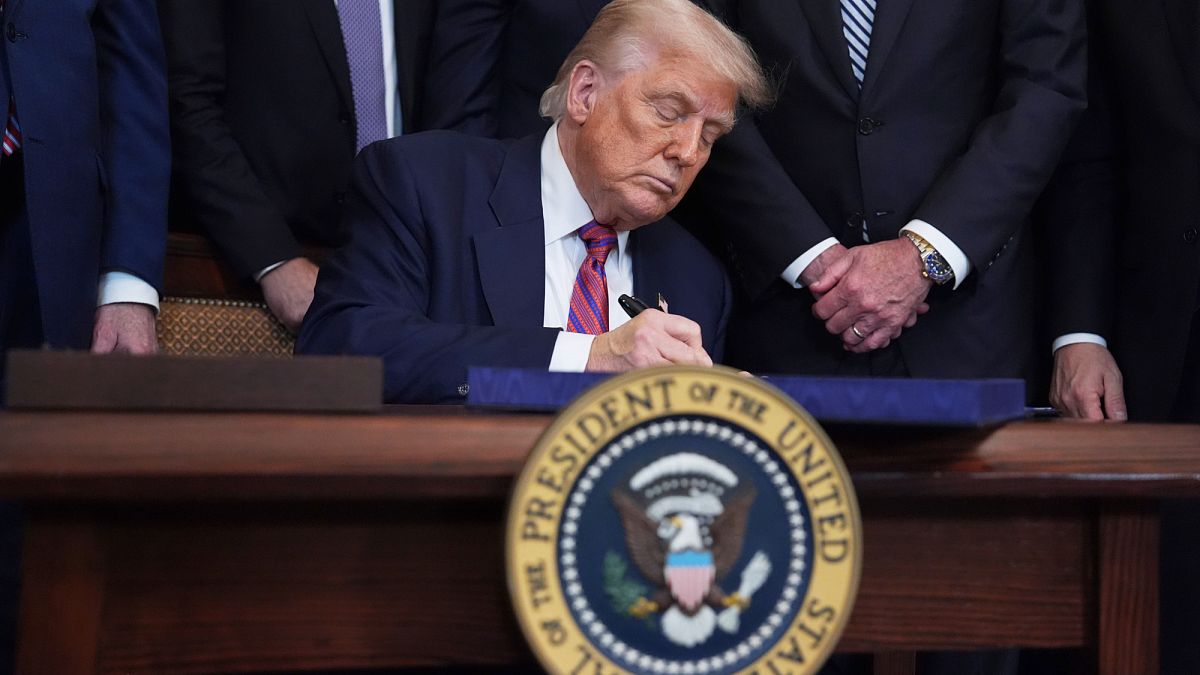

This week, various geopolitical and economic developments have captured the world’s attention, painting a diverse picture of contemporary challenges and opportunities. From aviation disruptions between the United States and Mexico to the booming luxury market in Europe, each story offers a unique window into the dynamics shaping our global landscape.
The Trump administration’s recent actions have drawn focus to the aviation alliance between Delta Air Lines and Aeromexico. The US government announced restrictions on Mexican flights in response to Mexico’s demand that airlines transition operations from Mexico City International Airport to the new Felipe Angeles Airport. Additionally, there are considerations to dismantle the longstanding Delta-Aeromexico alliance, a move poised to influence international travel frameworks and the strategic operations of airlines involved.
Across the Atlantic, the European luxury market defies global economic slowdowns. Despite broader challenges in the luxury goods sector, Europe’s market has shown resilience and growth, expanding by 3% in 2024 to reach close to €110 billion. Analysts suggest this surprising trend may be buoyed by the purchasing behaviors of Generation Z and the influence of platforms like TikTok, highlighting evolving consumer patterns that emphasize personalized experiences and sustainability.
In Brussels, the European Union faces a defining moment as Ursula von der Leyen secures her leadership with a win in the no-confidence vote. This outcome sets the stage for upcoming budgetary discussions, wherein migration challenges, encapsulated by increasing flows from Libya to Greece, and the anticipated EU-China summit in Beijing will likely dominate agendas, underscoring the complex nature of forging unity among diverse member states.
Germany’s economic recovery remains a top priority for Chancellor Friedrich Merz, who has voiced pointed critiques towards the European Union and outlined a roadmap to lift his nation out of recession. His strategy, focusing on national growth while navigating EU relationships, reflects an approach driven by pragmatic considerations amid continental economic pressures.
Demographic shifts remain an ongoing concern with Europe witnessing historic lows in birth rates. Current figures show some nations grappling with fertility rates just above one child per family, far below the replacement levels necessary to maintain population stability. This demographic challenge prompts questions about potential societal transformations and policy responses essential to addressing future skills and labor gaps.
Finally, a transformative trade dialogue is on the horizon as Indian Prime Minister Narendra Modi prepares for an official visit to the United Kingdom. This visit is significant, marking Modi’s first UK venture in seven years, and will focus on finalizing a pivotal trade deal. Strengthening ties between India and the UK may reshape economic linkages and highlight the post-Brexit realignment of global trade relationships.
These stories collectively offer a reflective look at how interconnected yet distinctive our world of nations has become. By examining these developments, we gain insight into the threads weaving together the tapestry of contemporary affairs, reminding us of the delicate balance between national interests and global collaboration.
Source: {link}
